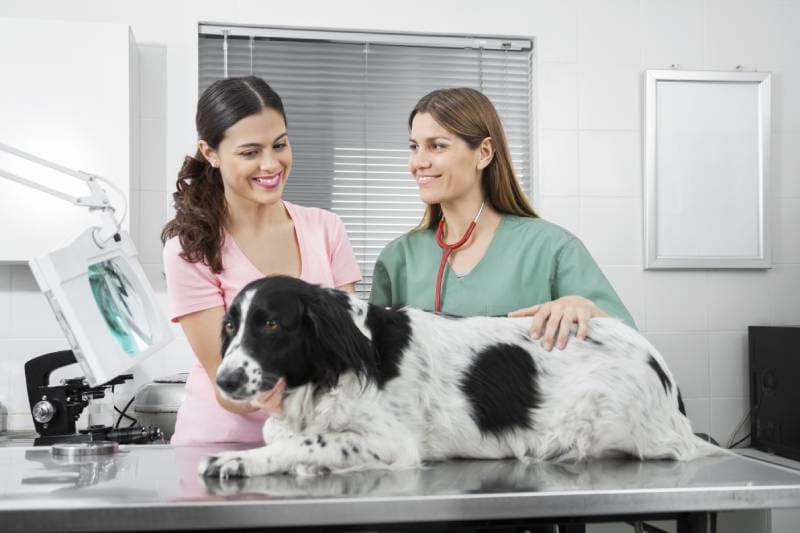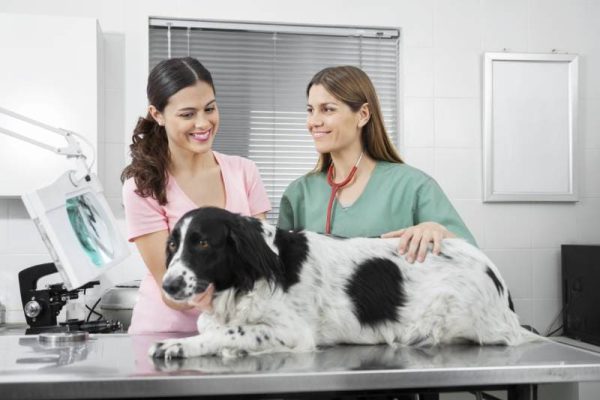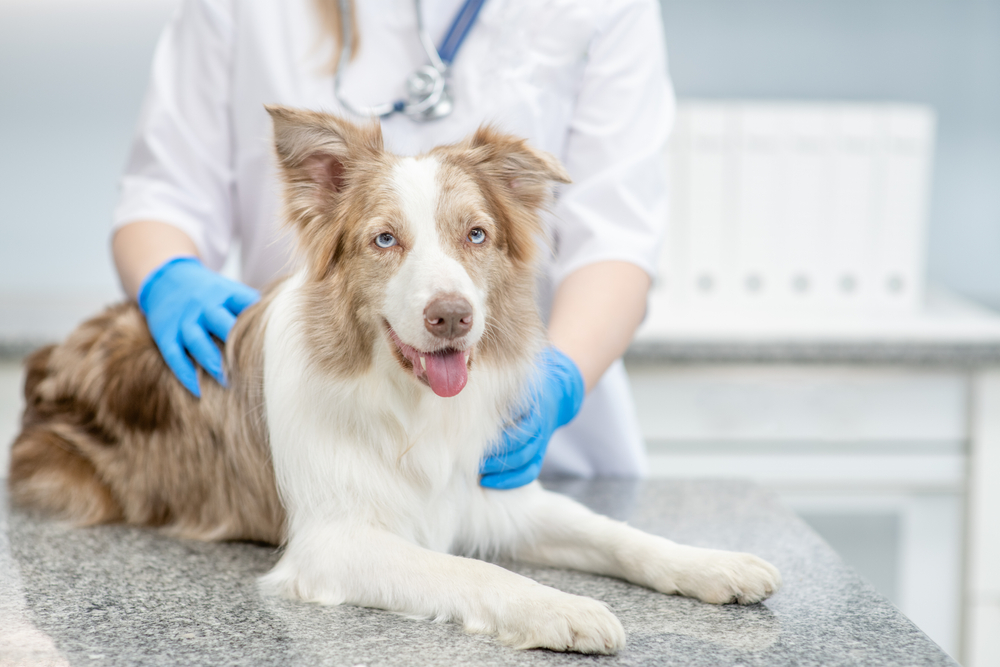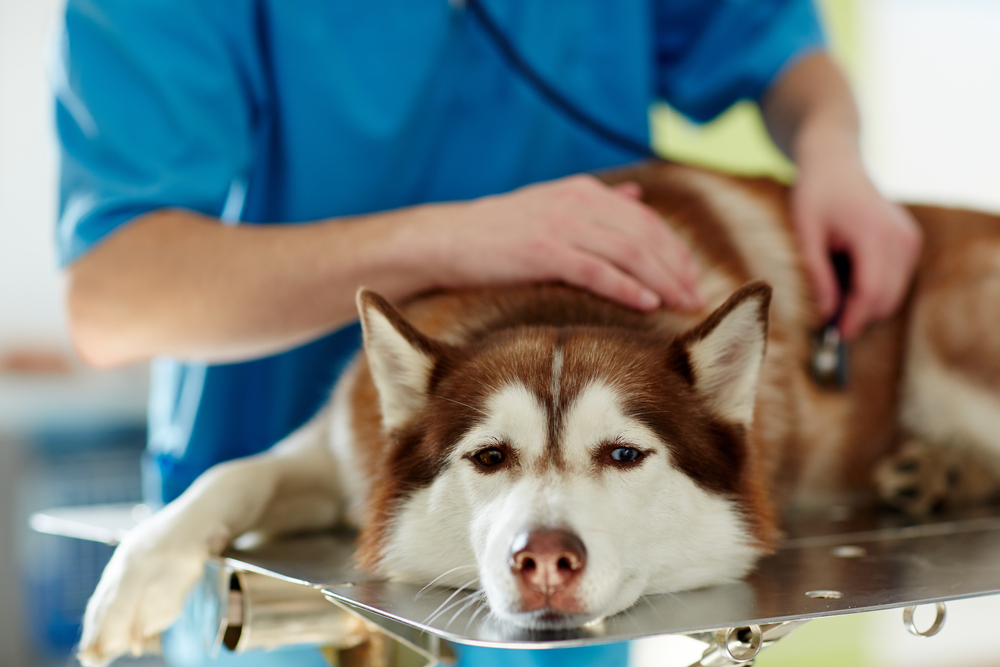If you’re a new pet parent considering getting your dog spayed or neutered, you may want to know more about the procedure’s benefits. Maybe you’ve noticed a peculiar behavior, and you are wondering if it can be attributed to the fact that your dog hasn’t yet been spayed or neutered. Spaying refers to female sterilization and neutering to male sterilization, surgeries that prevent them from being able to reproduce.
We collected a list of benefits for spaying and neutering, ranging from reducing and preventing health risks to leading to behavioral changes. Read on to find out exactly how this procedure will benefit your dog.
The 9 Benefits of Spaying or Neutering Your Dog
1. Reduces the Risk of Benign Prostatic Hyperplasia
Neutering your male dog reduces the chance of certain prostate problems later in life, such as benign prostatic hyperplasia (BPH). A dog produces a lot of testosterone if they haven’t been neutered, and over time, this can cause the prostate gland to become larger than normal.
BPH is incredibly common and develops in male dogs that haven’t been neutered. It can happen at any point in their life, but it is generally more common after 7 years of age. Luckily, for most dogs, it doesn’t cause a problem, but for some, it can result in the prostate getting so big that it gets in the way of their ability to urinate and defecate.
In severe cases, the prostate can become infected, which is a condition called prostatitis. The dog can also develop cysts, which cause further problems.
2. Prevents the Risk of Certain Cancers
Ovario-hysterectomy prevents the risk of ovarian and uterine cancer, and it also greatly reduces the occurrence of breast cancer if done before the second heat cycle. Neutering removes the risk of testicular cancer.
3. Prevents “Seasons” or “Heat” in Female Dogs
When a female is in heat, she will experience changes. She will urinate more often, there will be bleeding from the vulva, the vulva will be red and swollen, and she will lick her rear end more often. Not only that, but her behavior will change.
- Being overly friendly to other dogs
- Roaming to find a male dog
- Mounting/humping
- Showing signs of anxiety/nesting
- Standing/moving her tail to one side when touched
Getting your dog spayed will eliminate these behaviors and keep wandering males from visiting your property.
4. Affects Behavioral Differences
The most apparent behavioral difference between a dog that has been neutered or spayed is the need to “roam.” When a female is in heat, she will become a male’s focus if he catches her scent. He will go to extreme lengths to get to her, even leaping over fences or tunneling under them.
The scent of a female can travel far, and it makes containing a male even more difficult. Your male dog may stop eating, become aggressive, and increase his marking.
5. Prevents Womb Infections (Pyometra)
If your female dog hasn’t been spayed and is over the age of 6, she is at particular risk of developing an infection inside the womb (pyometra). This risk is due to hormonal changes during a season/heat. Most dogs return to normal once the heat is over, but some develop complications that lead to an infection (pyometra). As pyometra develops, it is particularly dangerous because the womb will fill with pus, which can lead to kidney failure, blood poisoning, peritonitis, and eventually, death.
Pyometra can be either “open” or “closed.” Open describes the womb entrance as open, where you are likely to see blood and pus coming from your dog’s vulva. The womb entrance is shut when it is closed, and you are unlikely to see the troubling signs. This is particularly dangerous because of the risk of uterine rupture.
6. Prevents Pregnancy
Unwanted pregnancies can be tricky and expensive, especially if you’re not sure what you’re doing. Pregnant females require high-quality dog food and may need regular veterinary visits.
Your dog can experience complications when giving birth, and these can be fatal for the puppies or the mother. Veterinary intervention is costly, and there is the added time and cost to raise the babies. The food costs to support the puppies and a nursing mother all add up, as do the regular checkups and medication that the pups will require as they grow.
7. Prevents Phantom Pregnancies
Even if you are careful not to let a male near your dog when she’s in heat, she can still suffer from a phantom pregnancy. Phantom pregnancies generally develop 4–9 weeks after a season and last a few weeks. You will notice nesting behavior like collecting toys, clothes, or blankets and mothering of an item like a soft toy.
- Aggression
- Low energy
- Nervousness
- Reduced appetite
- Swollen mammary glands and milk production/clear-brown liquid
- Swollen tummy (in extreme cases)
Besides this being distressing for your dog, treating false pregnancy signs can be costly.
8. Reduces the Risk of Some Infections
Sexually transmitted illnesses can occur in canines, as with most other mammal species. Canine brucellosis, herpesvirus, and transmissible venereal tumors are among the most common sexually transmitted infections. Sterilizing your pet will reduce their exposure to these infections.
9. Leads to Fewer Homeless Pets
If more pet owners neutered or spayed their dogs, local animal shelters, which are so often overpopulated, would experience a reduction in their populations. This means fewer animals are on the street, and fewer dogs are being euthanized. It also frees up space available to dogs that would otherwise be homeless.
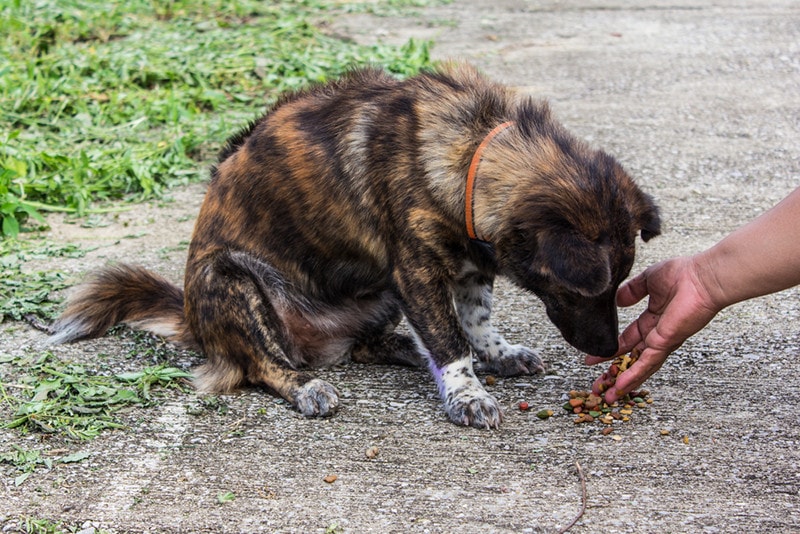
Frequently Asked Questions (FAQ)
Will Neutering Make Your Dog Fat?
It’s a myth that neutering will make your dog fat, but due to the hormonal changes your dog will experience, they will need fewer calories once spayed or neutered. If you find that your dog is putting on weight after they’re neutered, talk to your vet for advice on how to get them back into shape.

If you need to speak with a vet but can’t get to one, head over to PangoVet. It’s an online service where you can talk to a vet online and get the personalized advice you need for your pet — all at an affordable price!
Will Neutering or Spaying Change Your Dog’s Personality?
If your dog is well-socialized, confident, and happy, neutering will not change their personality. However, if your dog is fearful or has behavioral problems, neutering can make them worse. Sex hormones, such as testosterone, are known to boost confidence.
Reducing these hormones might make them more aggressive and fearful. If this concerns you, speak to your veterinarian or registered behaviorist for advice.
What If You Think It Isn’t Worth the Risk?
There have been studies that show an increase in the occurrence of joint diseases (like hip dysplasia and cranial cruciate ligament rupture) and certain cancers in neutered dogs of certain breeds.
However, it’s also argued that animal studies often involve too few animals to make species-wide decisions. Instead, it is recommended that each individual pet parent’s concerns be tailored to a decision appropriate for that pet. We recommend speaking to your vet if you are unsure about the procedure.
Final Thoughts
There are several benefits associated with neutering or spaying your dog. The procedures can reduce escape attempts, prevent unwanted pregnancies, and reduce the chances of contracting severe health issues. Whatever you are thinking of doing, though, it isn’t a decision that you must make alone. Your vet can give you medical insight based on your dog’s health. That said, we hope that this list has reassured you that spaying or neutering your dog can be beneficial in multiple ways.
Related Reads:
Featured Image Credit: Tyler Olson, Shutterstock
Contents
- The 9 Benefits of Spaying or Neutering Your Dog
- 1. Reduces the Risk of Benign Prostatic Hyperplasia
- 2. Prevents the Risk of Certain Cancers
- 3. Prevents “Seasons” or “Heat” in Female Dogs
- 4. Affects Behavioral Differences
- 5. Prevents Womb Infections (Pyometra)
- 6. Prevents Pregnancy
- 7. Prevents Phantom Pregnancies
- 8. Reduces the Risk of Some Infections
- 9. Leads to Fewer Homeless Pets
- Frequently Asked Questions (FAQ)
- Will Neutering Make Your Dog Fat?
- Will Neutering or Spaying Change Your Dog’s Personality?
- What If You Think It Isn’t Worth the Risk?
- Final Thoughts

